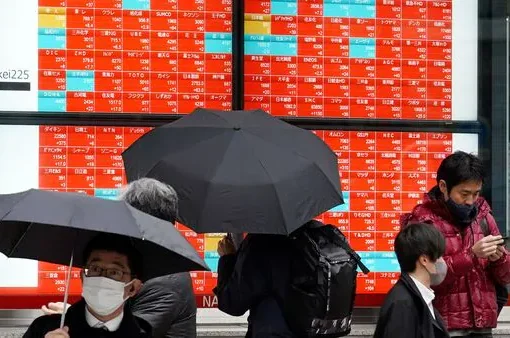Japan Seeks to Calm Market’s Nerves After Stock Price Fluctuations

In response to recent volatility in the stock market, the Japanese government and financial authorities are taking proactive measures to stabilize market conditions and restore investor confidence. The fluctuations in stock prices have raised concerns among investors and market participants, prompting a coordinated effort to address the underlying issues and reassure the public.
Background of the Market Volatility
1. Recent Market Fluctuations
Japanese stock markets have experienced significant volatility in recent weeks, with sharp fluctuations in stock prices impacting investor sentiment. The volatility has been attributed to a combination of domestic economic uncertainties, global economic developments, and geopolitical tensions.
2. Key Factors Contributing to Volatility
Several factors have contributed to the recent market instability. These include fluctuations in global commodity prices, changes in international trade dynamics, and shifts in investor sentiment influenced by broader economic conditions. Additionally, domestic economic indicators and corporate earnings reports have also played a role in driving market volatility.
Government and Financial Authorities’ Response
1. Policy Measures
The Japanese government, in coordination with the Bank of Japan (BoJ) and the Financial Services Agency (FSA), is implementing a series of policy measures aimed at stabilizing the stock market. These measures include:
- Enhanced Market Monitoring: Increased monitoring of market conditions to identify and address potential issues promptly. The authorities are working closely with market participants to understand the root causes of volatility and take appropriate actions.
- Market Interventions: The government is considering targeted interventions to support market stability. This may involve measures such as stabilizing interventions in the stock market or providing liquidity support to mitigate the impact of fluctuations.
- Communication and Reassurance: Clear and transparent communication from government officials and financial authorities is essential to reassure investors. The government is actively engaging with the media and stakeholders to provide updates on the steps being taken to address market concerns.
2. Support for Businesses and Investors
To further support market stability, the Japanese government is focusing on measures to assist businesses and investors affected by the fluctuations. These measures include:
- Support for Small and Medium Enterprises (SMEs): Providing financial support and assistance to SMEs facing challenges due to market volatility. This includes access to credit facilities and financial aid to help businesses navigate the uncertain environment.
- Investor Protection Measures: Implementing measures to protect retail investors and enhance market transparency. This may involve strengthening regulations and improving disclosure requirements to ensure that investors have access to accurate and timely information.
Market Reactions and Implications
1. Investor Confidence
The government’s response is expected to play a crucial role in restoring investor confidence. Clear and decisive actions, coupled with effective communication, are likely to help stabilize market sentiment and mitigate concerns among investors.
2. Long-Term Implications
The recent market fluctuations highlight the importance of maintaining robust economic policies and market regulations. The steps taken by the Japanese government and financial authorities will have implications for long-term market stability and economic resilience.
3. Global Impact
Given Japan’s position as a major global economic player, the stability of its stock market is of significant interest to international investors and markets. The measures taken to address the current volatility may influence global market dynamics and investor perceptions.
Future Outlook
1. Monitoring and Adjustment
The Japanese government and financial authorities will continue to monitor market conditions closely and make adjustments to their strategies as needed. Ongoing vigilance and adaptability are crucial to managing market stability and addressing any emerging challenges.
2. Economic Reforms
In the longer term, the government may also consider implementing structural economic reforms to strengthen market resilience and address underlying issues contributing to volatility. These reforms could include measures to enhance economic growth, improve market transparency, and strengthen financial regulations.
3. Investor Education
Increasing investor education and awareness will be important in helping individuals navigate market fluctuations and make informed investment decisions. The government and financial institutions may focus on providing resources and guidance to support investor understanding and confidence.
Conclusion
Japan’s efforts to calm market nerves after recent stock price fluctuations reflect a proactive approach to managing market instability and restoring investor confidence. Through a combination of policy measures, market interventions, and clear communication, the Japanese government and financial authorities are working to stabilize the stock market and support economic stability. As the situation evolves, ongoing monitoring and strategic adjustments will be key to ensuring long-term market resilience and investor trust.



Leave a Comment